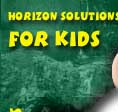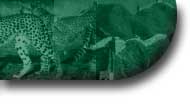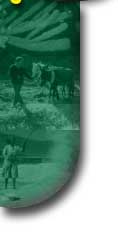 Photo
Contest Photo
Contest
Mukunda Bogati is a freelance photographer based in Katmandu,
Nepal. With a background in journalism, he is currently the Nepal representative
for Zuma Press Inc. HORIZON is pleased to present his photographs and
writings, which speak volumes about the environment and development challenges
of his home.
Note: HORIZON has just learned
that Mukunda was awarded a prize as a "highly commended photographer"
from the UK-based Christian development communications non-profit WACC,
as part of their photo contest, "Images of Communication." Congratulations!
Click here for more info.

Water Porter: One old man who carries water from historical underground
water source and provide to the local people. He will sell this water
as 10 Rupees (1US$= 74 Nepali Rupees) per bucket.
 Water
Mill: Nature has provided all type of services to people. But people don't
always take advantage of natural opportunities to create energy. In the
remote area of Nepal there is not any facility to generate electricity.
So the local villagers have developed the water mill to grind their food
seed. This type of mills run by waterfall and it is one of the reliable
sources to them. If they preserve this type of mill and develop to electricity
production it will be reliable energy source to local villagers. Water
Mill: Nature has provided all type of services to people. But people don't
always take advantage of natural opportunities to create energy. In the
remote area of Nepal there is not any facility to generate electricity.
So the local villagers have developed the water mill to grind their food
seed. This type of mills run by waterfall and it is one of the reliable
sources to them. If they preserve this type of mill and develop to electricity
production it will be reliable energy source to local villagers.
 Waste
from Top: During expeditions to the Mount Everest region, mountain climbers
have left trash in their wake. One of the Mountaineers, Ken Nobuchi from
Japan, has collected garbage up to 8,200 Meters. Waste
from Top: During expeditions to the Mount Everest region, mountain climbers
have left trash in their wake. One of the Mountaineers, Ken Nobuchi from
Japan, has collected garbage up to 8,200 Meters.
 Cleaning
from Clean: A village near the Nepal capital of Kathmandu is home to this
well. They cover their underground water source by cement plaster so it
will be easy for them to use for bathing and drinking, while keeping it
clean. Cleaning
from Clean: A village near the Nepal capital of Kathmandu is home to this
well. They cover their underground water source by cement plaster so it
will be easy for them to use for bathing and drinking, while keeping it
clean.
 Aware
of Pollution: Bagmati is one of the main holy rivers of Nepal and it flow
the center of Nepal capital Kathmandu. Garbage and sewage flows directly
into the river, but the local people are try to raise awareness to preserve
the beauty of the river. Aware
of Pollution: Bagmati is one of the main holy rivers of Nepal and it flow
the center of Nepal capital Kathmandu. Garbage and sewage flows directly
into the river, but the local people are try to raise awareness to preserve
the beauty of the river.
 Stop
to Them: Pollution is caused by humans. This picture is of one person
who is washing clothes in a pond. He only adds a little pollution, but
if other people will copy his work what will be the situation of this
pond after few years? Stop
to Them: Pollution is caused by humans. This picture is of one person
who is washing clothes in a pond. He only adds a little pollution, but
if other people will copy his work what will be the situation of this
pond after few years?
 No
Way: A paper factory releases chemicals into this river. The local villagers
can not find the fish now because of the river pollution. If we don't
stop this work now, in the future the river will be only chemicals. No
Way: A paper factory releases chemicals into this river. The local villagers
can not find the fish now because of the river pollution. If we don't
stop this work now, in the future the river will be only chemicals.
 Future
River: What will be the future of this river? This will be up to the next
generation. The development of industry is currently destroying the beauty
of Nature. So after the few years, there won't be any clean water in the
river. Future
River: What will be the future of this river? This will be up to the next
generation. The development of industry is currently destroying the beauty
of Nature. So after the few years, there won't be any clean water in the
river.
 Let's
make me first: In a remote area of Nepal, people cut the forest to meet
their needs. But the destruction of the forest is rapidly increasing.
Due to this deforestation, people face landslide problems every year.
Due to the awareness of this problem, we could stop this destruction. Let's
make me first: In a remote area of Nepal, people cut the forest to meet
their needs. But the destruction of the forest is rapidly increasing.
Due to this deforestation, people face landslide problems every year.
Due to the awareness of this problem, we could stop this destruction.
 Preserve
the Food: A traditional food preservation system in the remote areas
is to store their food and seeds in the roof of the house. It is quite
secure to them. Preserve
the Food: A traditional food preservation system in the remote areas
is to store their food and seeds in the roof of the house. It is quite
secure to them.
 I
Will See You: The beauty of the nature is undescribable. Mt. Fishtail
one of the major attractions of the mountains in Nepal. If we couldn't
preserve this beauty now, the future generation will not have this place. I
Will See You: The beauty of the nature is undescribable. Mt. Fishtail
one of the major attractions of the mountains in Nepal. If we couldn't
preserve this beauty now, the future generation will not have this place.
|













